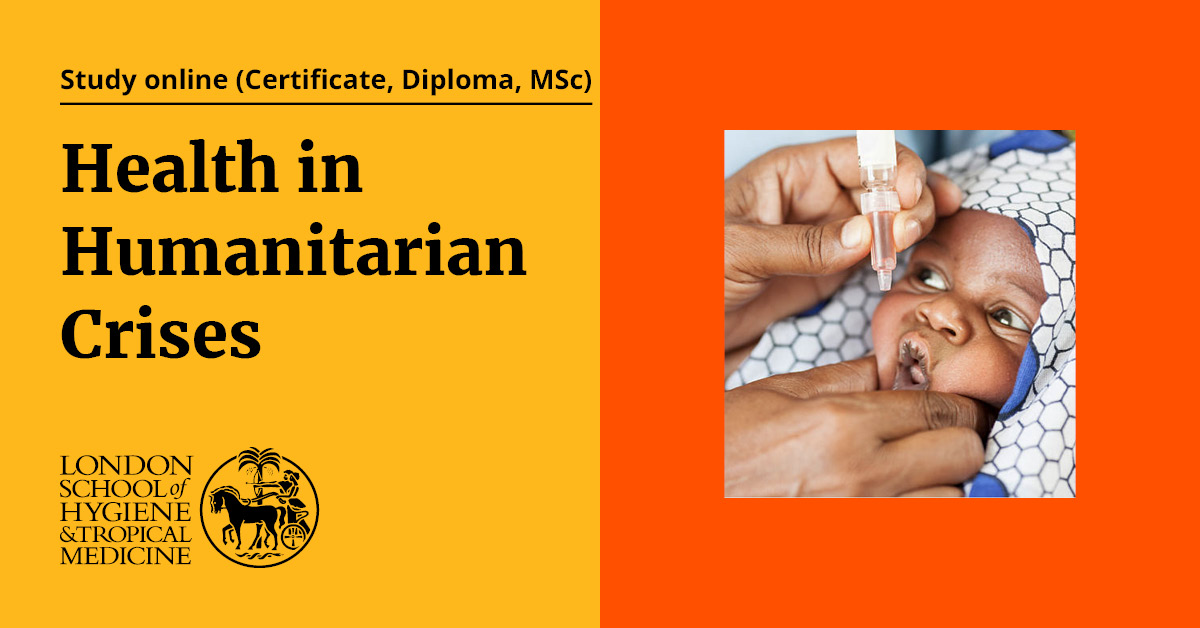We organise and lecture on a number of courses related to humanitarian crises and public health both at LSHTM and through external partners.
LSHTM-based
Health in Humanitarian Crises by Distance Learning
Our brand new Health in Humanitarian Crises distance learning programme (PGCert, PGDip & MSc) focuses on the knowledge and skills to improve the health of populations affected by humanitarian crises in different settings around the globe. You will be encouraged to develop transferable and subject-specific skills to address multi-faceted and current health problems in their local setting, as well as internationally.
This course is aimed at professionals who may already be involved in delivering public health projects in humanitarian crises at community, hospital or district level, in research, in ministries of health or other health- or development-related organisations. The self-study programme will suit practitioners, policy-makers or researchers who wish to deepen their understanding of humanitarian issues and increase their potential for career development in public health.
Within the LSHTM Masters programmes, the following crises-related MSc modules are available to registered students and also to a small number of external students:
- Conflict and Health (intensive)
- Conflict and Health (distance learning)
- Nutrition in Emergencies (intensive)
Crises-related teaching is also available in the MSc modules, 'Global Mental Health' (distance learning) and 'Designing Disease Control Programmes' (intensive) and the Professional Diploma in Tropical Nursing .
Find out all the courses available at LSHTM.
Summer projects
Opportunities for MSc students to conduct summer projects on humanitarian-related topics will be included on MSc summer project lists circulated to students each year.
The London School of Hygiene & Tropical Medicine (LSHTM) has a privacy notice for recipients of mailing list communications. If you are interested in knowing more, please consult our data protection pages.

